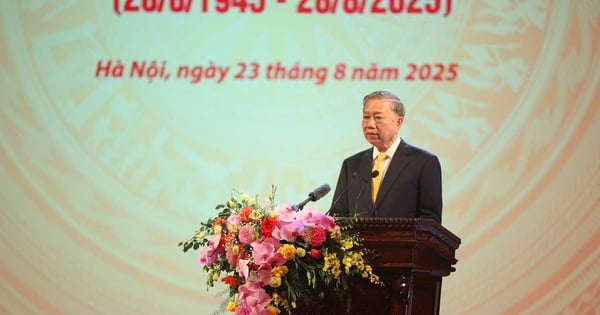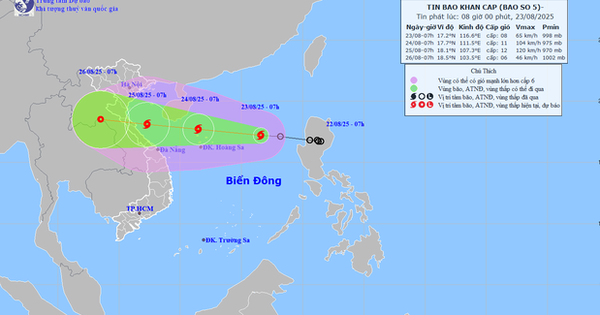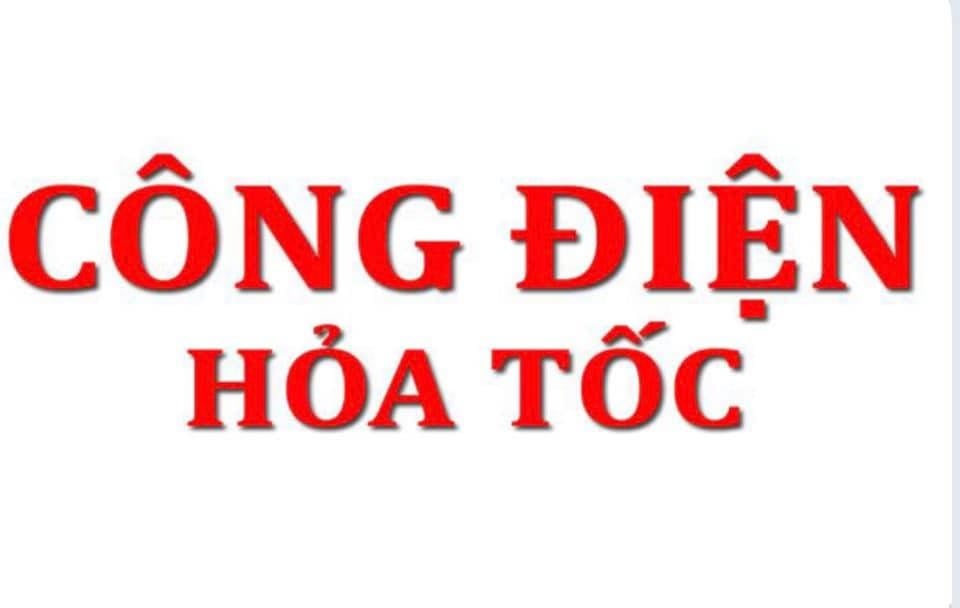US stocks rose sharply after Donald Trump's victory in the presidential election, forecasts of peak global oil demand, Russian gas to the EU and Moldova via Ukraine continued to increase, and China's exports recorded positive signals... were the world economic highlights of the past week.
 |
| The US stock market surged after Donald Trump was re-elected President. (Illustration photo - Source: Bloomberg) |
World economy
Global oil demand could peak within the next 10 years
Global oil demand could peak within the next 10 years as rising consumption in developing countries offsets a decline in advanced economies, Russell Hardy, chief executive of the world's largest energy trader Vitol, said on November 5.
Mr Hardy highlighted the difficulty in accurately predicting peak oil demand, particularly given the uncertainty surrounding consumption growth in developing countries. “The pace of transition from internal combustion engines to other forms of transport in OECD countries will be the most important driver. We believe that demand growth in non-OECD regions will far outpace the decline in demand within the OECD,” he added.
The International Energy Agency (IEA) recently predicted that global demand for oil, coal and gas will peak in 2030, amid growing demand for electric vehicles and renewable energy. The debate over future oil demand has heated up in recent years, with the Organization of the Petroleum Exporting Countries (OPEC) taking a stand against the IEA.
America
* The US stock market rose sharply on November 6, with all three major indexes hitting record highs, after major media outlets predicted Donald Trump would win the US presidential election the day before. Crude oil prices fell as the US dollar strengthened, although investors said Trump's foreign policy could tighten global oil supplies.
The Dow Jones Industrial Average closed up 1,508.05 points, or 3.57%, at an all-time high of 43,729.93. The last time the blue-chip index rose more than 1,000 points in a single session was in November 2022.
The S&P 500 index rose 2.53% to an all-time high of 5,929.04 points. The Nasdaq index also set a new record, rising 2.95% to close at 18,983.47 points.
* Activity in the US services sector unexpectedly accelerated in October to its highest level in more than two years, along with an improvement in employment, evidence that the US economy is on solid footing.
The Institute for Supply Management (ISM) said on November 5 that its non-manufacturing purchasing managers' index (PMI) rose to 56.0 last month from 54.9 in September. This is the highest level since August 2022. A PMI above 50 points indicates growth in the service sector, which accounts for more than two-thirds of the US economy. Previously, in a survey by Reuters news agency, economists predicted that the service PMI would fall to 53.8 points.
China
* Governor of the People's Bank of China (PBoC, central bank) Phan Cong Thang has pledged to maintain appropriate monetary policy and step up counter-cyclical adjustments to support the country's economic growth.
Maintaining appropriate monetary policy and strengthening countercyclical adjustments will create a sound monetary and financial environment for stable economic growth and high-quality development. Mr. Phan Cong Thang also emphasized the need to proactively prevent and handle risks to the financial system by strengthening regulatory supervision.
* China's exports are likely to grow at a faster pace in October 2024, helped by favorable weather and heavy discounts, a Reuters survey showed, even as manufacturers and other major exporters reported a slowdown in global demand.
China's exports likely rose 5.2% year-on-year in October, compared with a 2.4% increase in September, according to a survey of 34 economists. Meanwhile, the country's imports last month likely fell 1.5%, a sharp reversal from September's 0.3% increase.
Europe
* To combat tax evasion and unfair competition in the digital economy, the European Union (EU) has just passed a series of new regulations on value-added tax (VAT). Accordingly, online platforms such as Airbnb and Uber will be responsible for collecting and paying VAT on the services they provide, helping to create a fair playing field for traditional businesses, while increasing EU revenue.
On November 5, after nearly two years of negotiations, the EU Council announced that it had approved a VAT reform package to address tax collection shortcomings and support the digital transformation of European countries. The Council hopes that the new rules will help prevent serious VAT losses, as member states lost up to 61 billion euros in 2021 due to loopholes in the tax collection system.
* Lower oil prices and subsidies for domestic refineries caused Russia's oil revenue in October 2024 to reach $10.8 billion, down 29% from a year earlier, according to Bloomberg estimates based on official data released by the Russian government on November 5.
In October 2024, international oil prices and the price of Urals, Russia's main oil grade, fell compared to the same period in 2023. This situation eroded Russia's revenue as the average price of Urals oil was $63.57/barrel, significantly lower than the $83.18/barrel in October 2023.
* Russian gas supplies to EU member states and Moldova via Ukraine increased to near the technically possible maximum in October 2024, Vedomosti newspaper reported on November 2, citing data from Russian gas monopoly Gazprom. According to Gazprom, a total of 1.31 billion cubic meters of gas were delivered via this route to the EU and Moldova in October.
The average daily volume of Russian gas supplies via Ukraine's gas transmission system (GTS) last month was 42.3 million cubic meters - up 5% year-on-year.
Previously, the Thuong Gia newspaper reported that Russia exported 3.06 million tons of liquefied natural gas (LNG) in October 2024, a record volume since the beginning of 2024.
* The UK is importing record amounts of electricity from Europe to maintain power supplies as the closure of coal and nuclear power plants puts pressure on the national grid.
Electricity imports have surged after two new transmission lines were installed between Britain and the continent, increasing the amount of foreign electricity available in Britain theoretically by more than 30%.
According to data released by the National Energy System Operator (Neso), the UK's total net electricity imports hit a new record of 26.3 terawatt hours from January to September 2024. This surpassed the 24.6 terawatt hours achieved three years ago.
Since the beginning of the year, the majority of Britain's electricity imports have come from France.
* Contrary to many previous concerns, the German economy was not affected by the US Inflation Reduction Act (IRA) , according to research results from the German Economic Institute (IW).
“Many of the arguments and data available so far suggest that the IRA boosts German exports rather than hurts them,” the IW analysis said. Concerns that German companies would relocate to the US due to generous funding programs “have yet to be borne out in practice,” the IW researchers said.
Japan and Korea
* Recently, Japanese energy giant Iwatani Corporation announced that it has completed the construction of a boat that runs entirely on hydrogen fuel cells and will let the boat transport passengers at the Osaka Kansai Expo 2025.
This will be the first time a hydrogen-powered boat will go into commercial operation in Japan .
The company will conduct testing operations and aims to put the boat into operation during the Osaka Expo 2025 opening in April 2025.
* According to data released by the Ministry of Agriculture, Food and Rural Affairs of South Korea on November 5, as of October this year, the export turnover of Korean agricultural products reached a record high , thanks to the popularity of processed food products globally.
Amid the growing popularity of Korean entertainment culture worldwide, from January to October 2024, the total export value of Korean agricultural products, including fresh and processed products, reached 8.18 billion USD, up 8.7% year-on-year.
* South Korea's inflation in October 2024 fell to a 45-month low , remaining below 2% for the second consecutive month.
In October 2024, consumer prices, a key gauge of inflation, rose 1.3% year-on-year. This was the second consecutive month that South Korea's inflation was below 2% after rising just 1.6% in September. October's inflation marked the lowest increase since January 2021, when consumer prices rose 0.9%.
Consumer inflation in South Korea has remained below 3% since April 2024 and fell below the target of 2% for the first time in September.
South Korea's finance ministry said the country is expected to achieve its 2024 inflation target of 2.6%.
ASEAN and emerging economies
* Indonesian President Prabowo Subianto on November 5 signed a regulation to waive debts for individuals and micro, small and medium enterprises (MSMEs) in the agriculture, fishing and plantation sectors. The measure aims to improve access to new loans for small businesses across the country.
The provision only applies to loans from state-owned banks. The debt relief will apply to a maximum debt of Rp 500 million ($31,595) for business entities and Rp 300 million for individuals. The application will be considered for MSMEs in the agriculture, fisheries and plantation sectors that are facing difficulties such as earthquakes, natural disasters and Covid-19.
* Thailand's tourism industry has recovered strongly with more than 29 million international visitors visiting the land of golden temples in the first 10 months of this year, generating tourism revenue of 1,350 billion baht (39.59 billion USD).
From the beginning of the year to November 3, 29,080,399 foreign tourists visited Thailand and they spent about 1,360 billion Baht during their stay. Among foreign tourists to Thailand, the leading group were tourists from China (5,756,998), followed by Malaysia with 4,187,399, India (1,725,659), South Korea (1,539,516) and Russia (1,309,395).
* The Thai Ministry of Labor has recently set a target to export more Thai workers to Singapore, especially in the shipbuilding sector.
On November 3, Thai Labor Minister Phiphat Ratchakitprakarn, who recently visited Singapore, said that there are nearly 4,000 Thai workers working in Singapore. Most of these workers are in the construction, manufacturing, welding, flight attendant, electronic component manufacturing, pipe fitting and general labor sectors.
During his visit to Singapore, Mr. Phiphat had discussions with Singaporean officials and businessmen to find ways to expand the labor export market in this island nation.
Source: https://baoquocte.vn/kinh-te-the-gioi-noi-bat-1-711-chung-khoan-my-ruc-xanh-sau-chien-thang-cua-ong-trump-xuat-khau-lng-nga-dat-ky-luc-eu-siet-thue-vat-292848.html








![[Photo] General Secretary To Lam attends the 80th Anniversary of the Cultural Sector's Traditional Day](https://vstatic.vietnam.vn/vietnam/resource/IMAGE/2025/8/23/7a88e6b58502490aa153adf8f0eec2b2)













































































Comment (0)